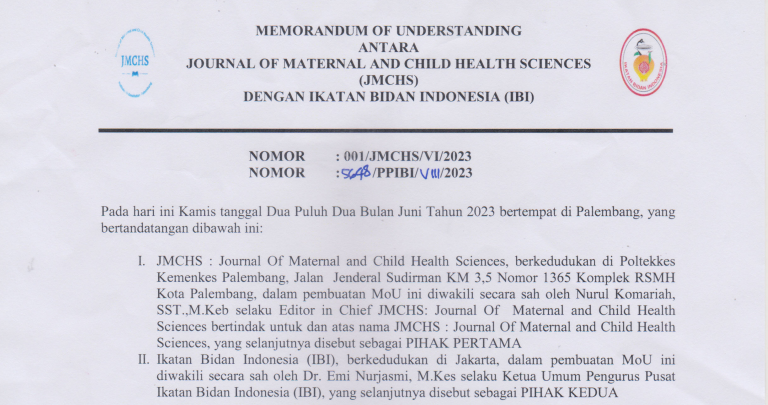Increasing Pre School’s Fine Motor Development Using The Origami Folding Art Method
Abstract
Background: Preschool is children have not entered formal education. The incidence of growth and development disorders in children under five is still high, especially motor development disorders. One of the factors influence the development of children is lack of stimulation. The purpose of this study was to analyze the improvement of fine motor development in preschool children with the origami folding art method.
Methods: Research Design is a quasi-experimental. Non-equivalent control group. This study was conducted at Dharma Wanita 1 Kindergarten Palembang in January – March 2019. The samples were all students in Dharma Wanita 1 Kindergarten Palembang, aged 5-6 years. The number of samples is 36 respondents. 18 children in the control group and 18 in the origami group. uses the Developmental Pre-Screening Questionnaire (KPSP )Instrument. Used the Chi-Square test.
Results: 18 people (100%) who received origami treatment there were 16 people who matched (88.9%). P value = 0.438 there is no difference in fine motor development. With an OR value of 0.438, the control group will be at risk of experiencing doubtful 0.438 times to the group that gets stimulated by folding origami.
Conclusion: There is an increase in fine motor skills in children who receive fine motor stimulation.
Authors who publish with this journal agree to the following terms:
- Authors retain copyright and grant the journal right of first publication with the work simultaneously licensed under a Creative Commons Attribution License that allows others to share the work with an acknowledgement of the work's authorship and initial publication in this journal.
- Authors are able to enter into separate, additional contractual arrangements for the non-exclusive distribution of the journal's published version of the work (e.g., post it to an institutional repository or publish it in a book), with an acknowledgement of its initial publication in this journal.
- Authors are permitted and encouraged to post their work online (e.g., in institutional repositories or on their website) prior to and during the submission process, as it can lead to productive exchanges, as well as earlier and greater citation of published work












